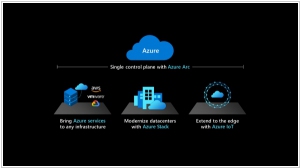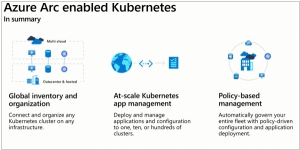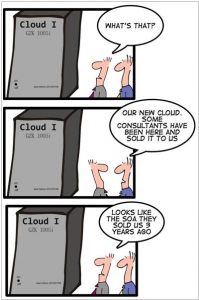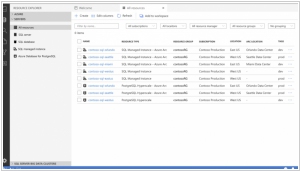Azure Arc is #9 in Top 10 Private Cloud platforms
Cloud platform for customers who want to simplify complex and distributed environments across on-premises, edge and multicloud, Azure Arc enables deployment of Azure services anywhere and extends Azure management to any infrastructure.
Positions in ratings
#9 in Top 10 Private Cloud platforms
Alternatives
The best alternatives to Azure Arc are: Google Anthos, VMware vCloud, Terraform
Latest news about Azure Arc
2020. Microsoft brings data services to its Arc multi-cloud management service

Microsoft has introduced a significant update to its Arc multi-cloud service, empowering Azure customers to operate and oversee workloads across various clouds, including those offered by Microsoft's competitors, as well as their on-premises data centers. Initially unveiled at Microsoft Ignite in 2019, Arc was designed not only to assist users in managing their servers but also to enable them to run data services such as Azure SQL and Azure Database for PostgreSQL in proximity to their data. Today, the company fulfills this commitment by launching a preview version of Azure Arc-enabled data services, which unsurprisingly includes support for Azure SQL and Azure Database for PostgreSQL. Furthermore, Microsoft has made the core feature of Arc, Arc-enabled servers, generally accessible. These tools form the foundation of the service, empowering enterprises that employ the standard Azure Portal to administer and monitor their Windows and Linux servers throughout their multi-cloud and edge environments.
2020. Azure Arc brings its Kubernetes service into public preview

Microsoft has unveiled that Azure Arc, its cloud resource management service designed to operate across various environments, including rival clouds such as AWS and GCP, as well as platforms like Red Hat's Open Shift, is introducing Azure Arc-enabled Kubernetes in its public preview. This update empowers users to configure and oversee Kubernetes clusters across their data centers, edge locations, and public clouds. Additionally, Microsoft announced the inclusion of support for SUSE Linux Enterprise Server and the SUSE CaaS Platform within Azure Arc's capabilities.
2014. Microsoft Azure appliance makes comeback

Microsoft is introducing a fresh Azure appliance that enables companies or service providers to implement it within their own data centers. Dubbed the Cloud Platform System, this novel appliance will operate using identical Azure APIs, services, hypervisor, and all other components as the Azure public cloud, while effortlessly establishing connections with the Azure public cloud. Notably, Microsoft's past exploration of Azure appliances adds to the appeal of this appliance. Previously, the company had contemplated selling appliances to select large service provider partners, like HP, and had even launched a program to assist web hosts in launching their own versions of Azure. However, both initiatives seemed to have been abandoned due to various business and technological factors. Nevertheless, the appliance has made a resurgence.
2010. Windows Azure is already sold in boxes

Though there is a big deal of debates around the "private cloud" term (if it's correct to call own data center, optimized with virtualization technology, a "cloud") - no one can deny that these things called "private cloud" are already selling well. The fact is that many companies are still not ready to move their IT infrastructures to public cloud platforms like Amazon EC2 and Windows Azure. But when they are told that "you can take the advantage of Cloud Computing (cost-efficiency, scalability) without any risk for data security, because the cloud will be locked in your office" - they like this. Obviously, private clouds are the necessary intermediate stage of transition companies to "real clouds" and cloud providers have to take a step back so that the process started. So it was with Microsoft. ***



